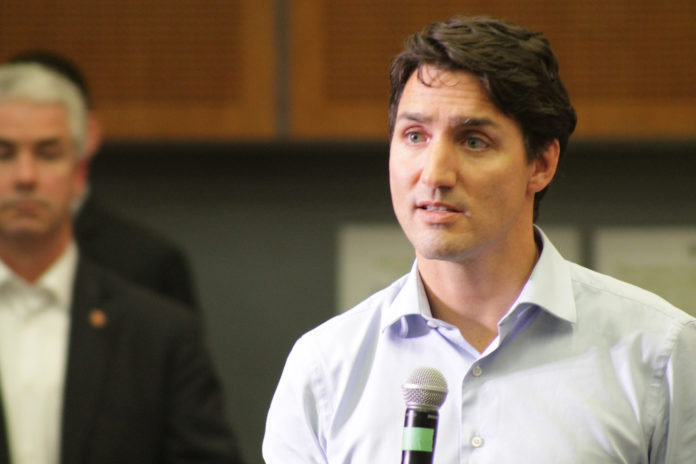The federal government projects a deficit of $343.2-billion in 2020-21 due an economic downturn caused by the COVID-19 pandemic shutdown.
Federal Finance Minister Bill Morneau told parliament the country faces “the most profound economic downturn since the great depression” during a fiscal and economic update on Wednesday. Morneau expects economic activity to decline by 6.8 per cent in 2020 before rebounding in 2021.
Despite the decline, Morneau told parliament the situation would be even worse if the government hadn’t stepped in to replace more than $40-billion in lost labour income. Without it, he argued, the economy would have declined even further.
“Some will criticize us on the cost of action. They’ll point to the size of our deficit in 2021,” Morneau said during the update. “It’s a testament to the shock that COVID-19 had on our economy, but our government knew that the cost of inaction would have been far greater.”
Provincial debt has outpaced federal debt by $225-billion over the last financial quarter, and the ratio of household debt to disposable income has increased by more than 175 per cent. Morneau said those statistics show just how large the crisis was. He said the federal government was uniquely suited to step in and take on additional financial burdens.
“Those who would have us do less ignore that without government action, millions of jobs would have been lost, putting the burden of debt on to families and jeopardizing Canada’s resilience,” he said. “At a time when Canadian workers and families are facing significant hardship, austerity and tightening our belt is not the answer.”
Morneau said that historically low borrowing rates will allow Canada to manage its debt and remain economically competitive. He added that the road to recovery is still uncertain, and would largely depend on whether the pandemic subsides in the coming months.
The government was predicting a $34.4-billion deficit prior to the COVID-19 outbreak.
Prime Minister Justin Trudeau said the focus is on “holding things in place” as long as the pandemic continues.
“There are many Canadians getting back to work these weeks. There are many others who are still in a position where they can’t find jobs,” he told reporters on Wednesday. “That’s what we’re focused on right now because we’re still very much in an urgent phase of this pandemic.”
Official opposition leader Andrew Scheer said Wednesday’s update paints “an extremely dire picture” for Canadians. He argued government should “unleash the private sector” by cutting taxes and eliminating red tape for small businesses, which will help Canada’s economy remain competitive.
“The biggest misconception right now on the economy is that if we simply rescind the restrictions and provinces reopen, our economy will come roaring back to life,” Scheer told parliament. “The reality is it will take leadership, big ideas, and a lot of hard work, but the Prime Minister’s track record proves that he cannot be trusted to leave Canada’s recovery.”
The $343.2-billion deficit means Canada’s national debt will pass the $1-tillion mark during the 2020-21 fiscal year.
Conservative Party shadow finance critic Pierre Poilievre said almost all the programs contributing to that deficit were necessary to help Canadians get through the pandemic. However, he also argued the federal government didn’t have a plan to boost the economy once the pandemic ended. Poilievre said the government should remove restrictions on support programs like the Canada Wage Subsidy, which would allow business owners time to rebuild after months of inactivity.
“We know that no nation can go on consuming without producing,” Poilievre told parliament. “The only way for us to continue to exist economically is to once again unleash the full and incomparable power of Canada’s 20-million person workforce (and) to let free the more than 1-million entrepreneurs and businesses that employ those workers.”
The federal government introduced a COVID-19 Economic Response Plan at the start of the pandemic. They’ve spent more than $230-billion as part of that plan, and offered up to $85-billion in tax and customs duty payment deferrals.
The Canadian Taxpayers Federation (CTF) also criticized the federal government’s COVID-19 spending. CTF federal director Aaron Wudrick said the government needs to either end or significantly reform the Canada Emergency Response Benefit, since it creates an unintended incentive for people to stay out of the workforce. He also worried to federal government didn’t have a strong enough plan to return the country to sound financial footing.
“Much of this spending was intended to temporarily address the COVID-19 crisis, but these programs are extremely expensive and unsustainable,” Wudrick said in a media release. “Minister Morneau needs to lay out a plan to turn off the taps, but he failed to do that.”


